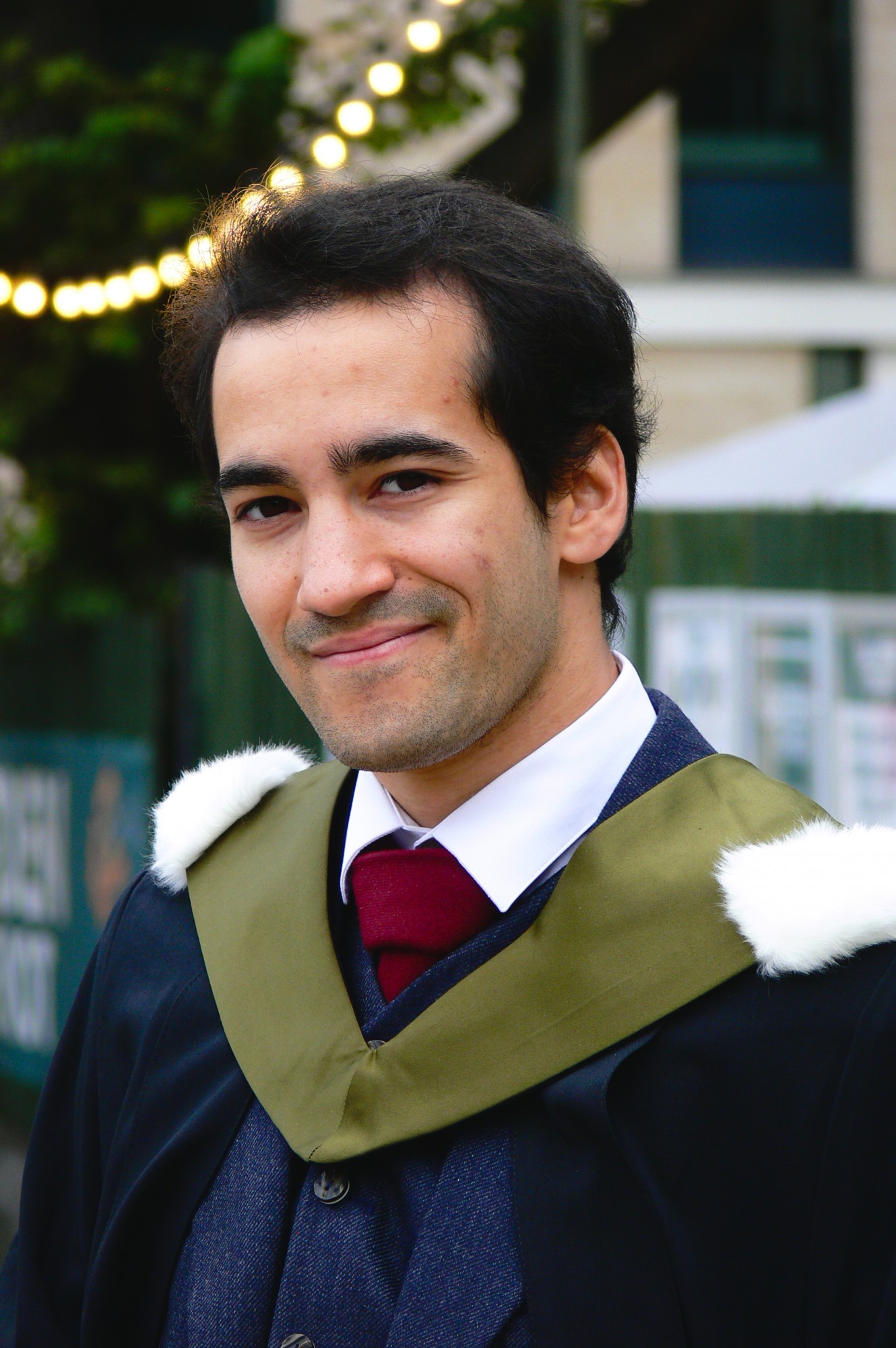Adam Davies
Adam tells us about his role as Nuclear Safety Engineer at Rolls-Royce.
Why did you decide to study at the University of Edinburgh?
I was largely drawn to Edinburgh by the city and the School of Physics and Astronomy. My sister was already studying at the University of Edinburgh and I had the opportunity to visit a few times and get an insight into what living in Edinburgh was like.
The physics department itself was renowned. The Higgs boson had recently been discovered and there was a lot of renewed attention coming to the School of Physics and Astronomy.
Edinburgh was really appealing to me as it felt like the sort of environment where the city and the academics would sort feed into each other: attending a high ranked institution while enjoying the quality of life that a city like Edinburgh can offer.

How did you get where you are?
When I decided what to study at university, I was driven by the desire to be a commercial airline pilot. I gravitated towards a physics degree, instead of maths or engineering, because physics felt a little bit stranger and more abstract. I also remember doing a module at school on alternative energy sources and nuclear energy, which really stood out for me.
When Covid happened, suddenly the travel industry was not looking so good anymore. Nuclear physics was appealing to me and I was interested in pursuing this path. In fourth year I chose courses accordingly and I did the nuclear physics course with a course in quantum mechanics. This then led me to do a Masters in nuclear energy at the University of Cambridge and from there to land in my current job as a Nuclear Safety Engineer at Rolls Royce.
My job involves working with a nuclear plan, maintaining the safety of power systems, controlling temperature and reactivity. I work with performance engineers and also external regulators to make sure that there's enough justification for certain risks.
Were there any experiences during your time at University which particularly helped prepare you for life after graduation?
Having a strong grip on mathematics, as well as the ability to take a complex problem and break it down its constituent parts were essential skills developed at university. The BSc in Physics with Meteorology also prepared me for my Masters at Cambridge. My undergraduate degree was a fast paced, full-time programme and going into a Masters afterward was not a big jump in terms of workload.
At the University of Edinburgh I also enjoyed the collaborative mindset. This prepared me for my professional life. Any engineering project requires a collaborative effort. The physics degree certainly put that into perspective: even when things are difficult you do not have to do it alone.
Do you have a favourite memory of your time in Edinburgh?
If I was to pick just one, I would say I remember how people were supporting each other. My Senior Honours project was the highlight of my fourth year. I was working in the lab most of the time and I enjoyed collaborating with fellow students on the different assignments. We were encouraging each other’s intellectual curiosity, bringing everyone to the same level.
Also, during Covid, the social element of the group projects was ramped up to a whole new level. Meeting on Zoom was the perfect moment to talk about physics as well as everything else that was going on in life at that moment. I remember our Project Supervisor also joining in on some of these calls.
What do you wish you had known as a student?
I wish I had appreciated Edinburgh more and not take for granted how much it has to offer and how beautiful it is. When you live in Edinburgh you never run out of things to do, but it never feels like big and overwhelming. I remember in my last year, during Covid, walking around Edinburgh and going to places I'd never seen before. I wish I had taken better advantage of the city and the surrounding areas during my four years at university.
At University, I had to resit the first year. I came into first year with a do it alone mindset, without looking for help. I later realised that's not how this works, as students worked to support each other

